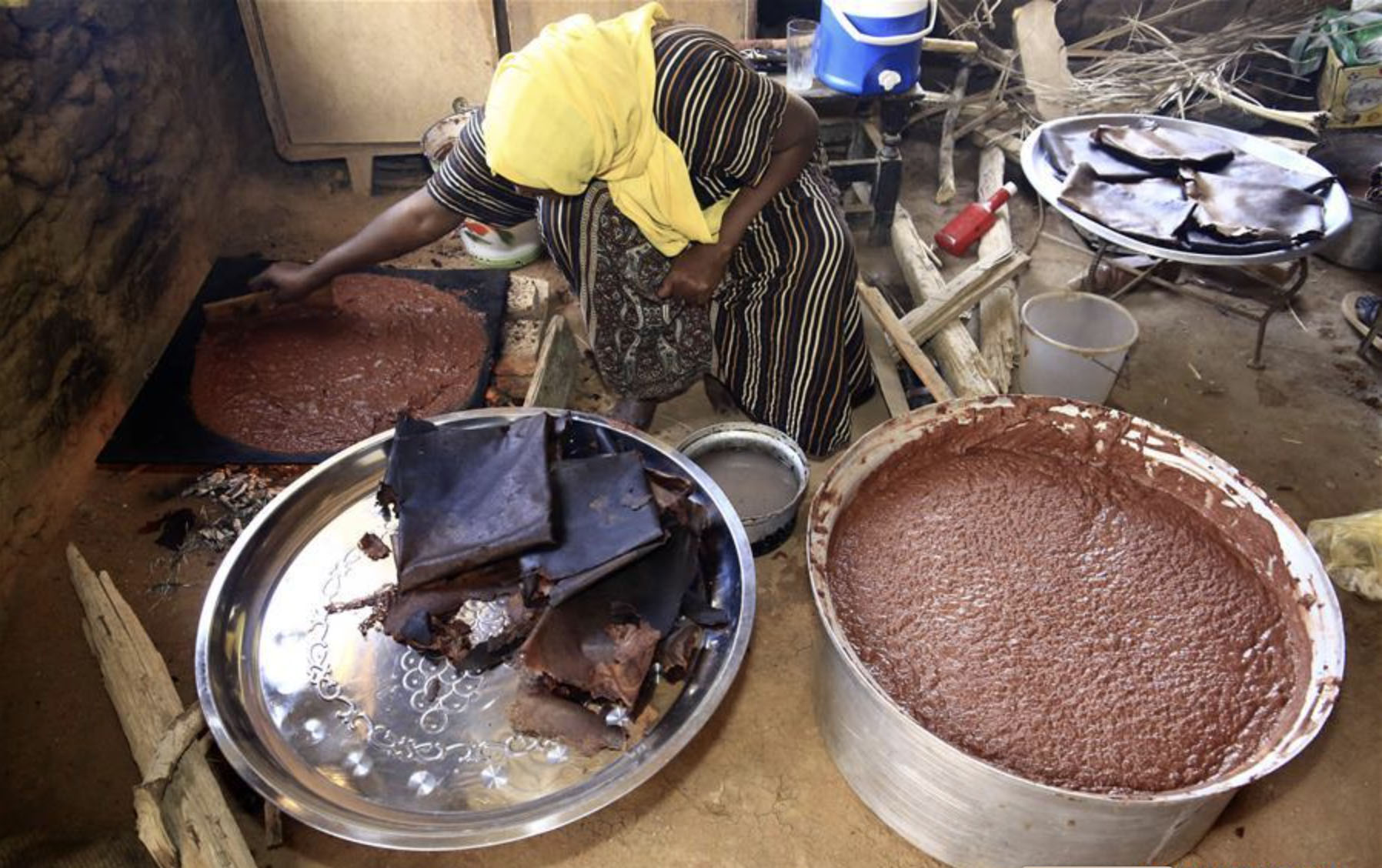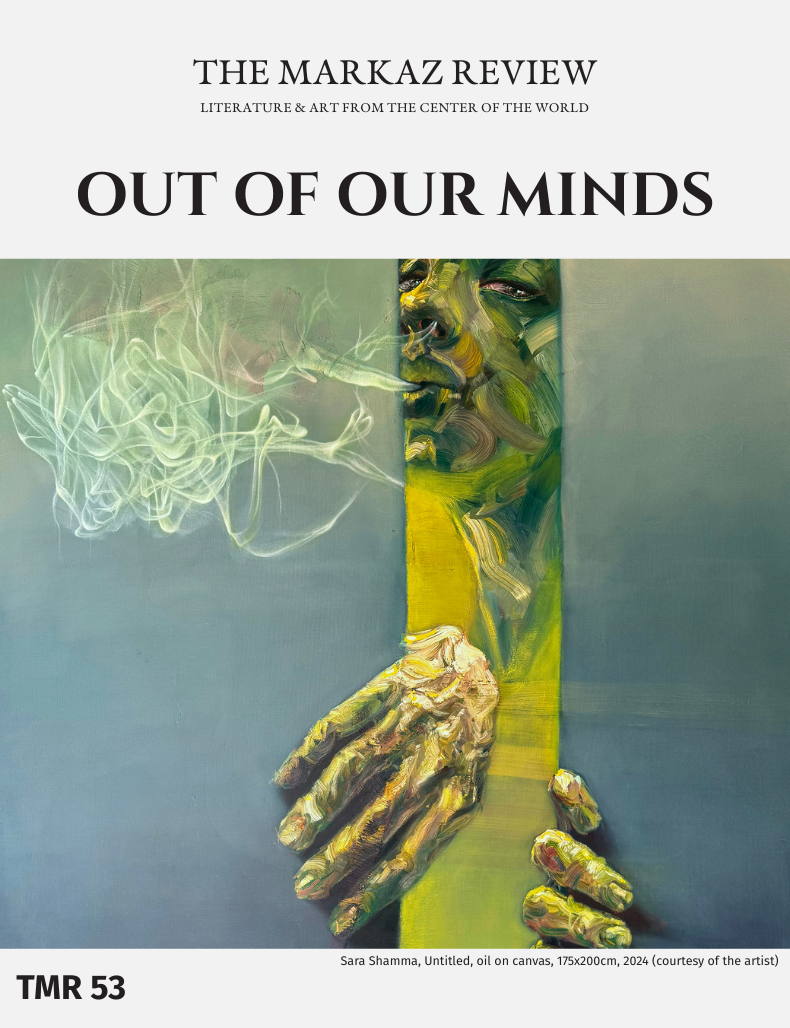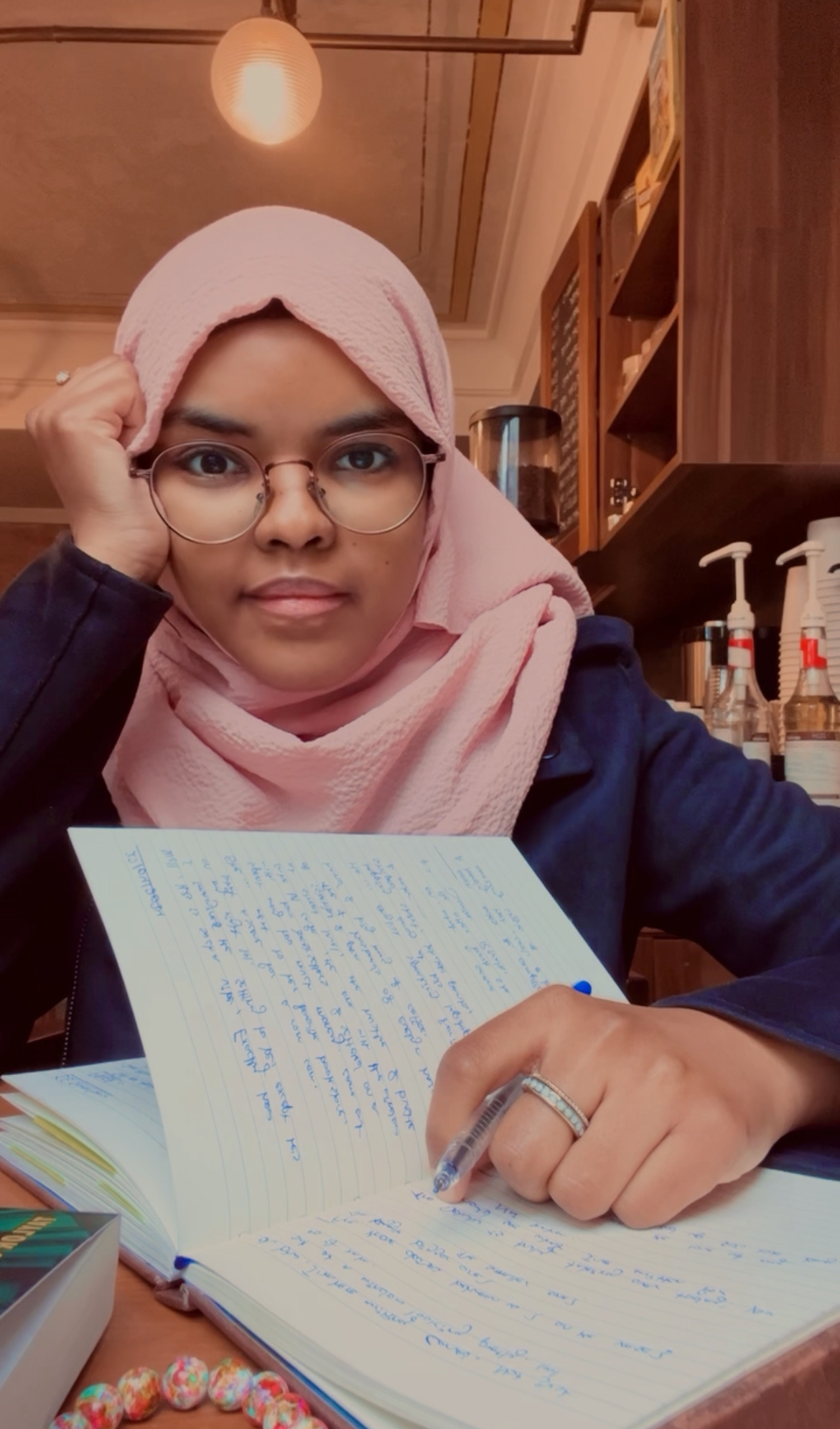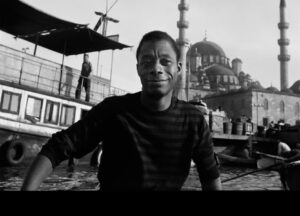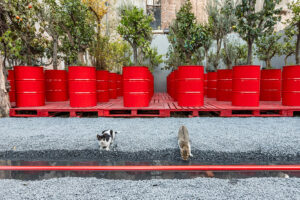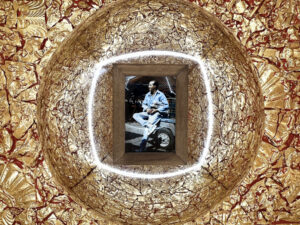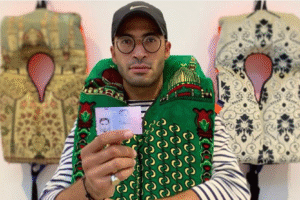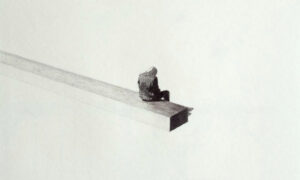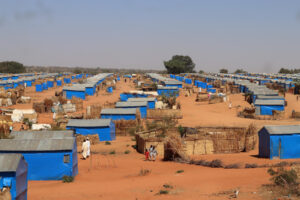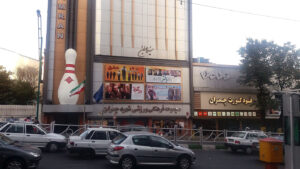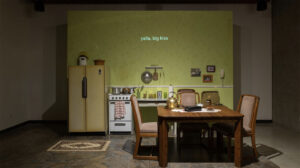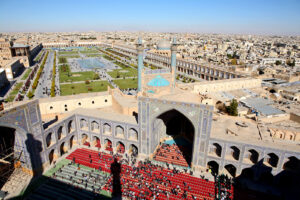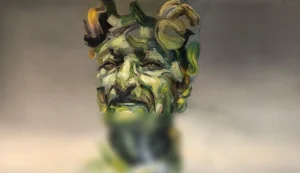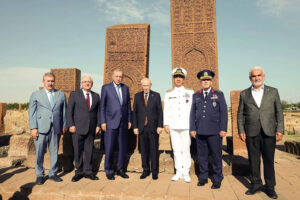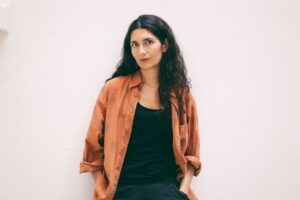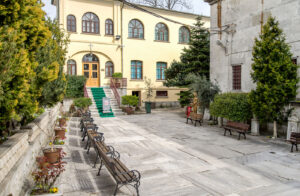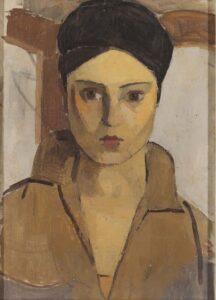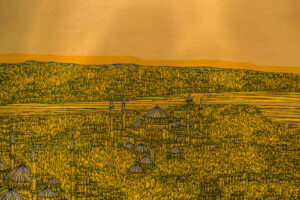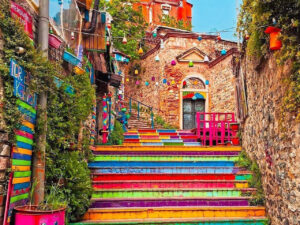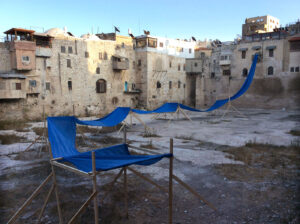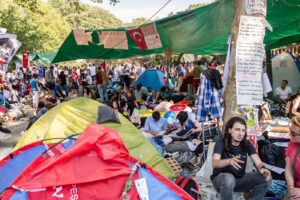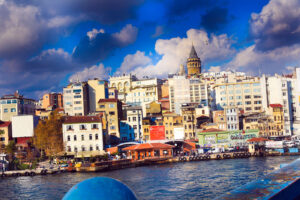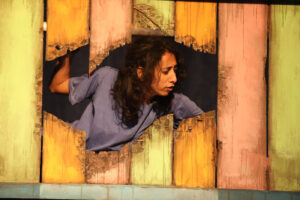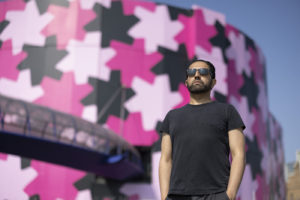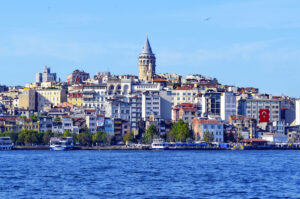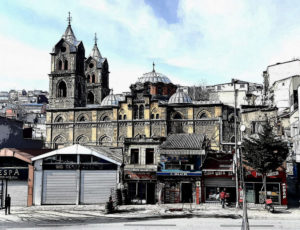14 million people were displaced from Sudan during the ongoing war, the Sudanese diaspora develops coping mechanisms to deal with the consequences of war, displacement, grief, and keeping the culture alive by the power of Zoom weddings and Hilo-Murr.
In the heart of Istanbul, a Sudanese restaurant nestles snugly in a second-floor apartment building, where they serve an array of mouth-watering Sudanese dishes. Each meal is complemented by a refreshing jug of Hilo-Murr, a popular Sudanese drink crafted from a blend of spices, that takes months to prepare and is served ice cold. The restaurant has a makeshift kitchen, a terrace with low stools and wooden tables, and a dining hall that undergoes a metamorphosis every time an occasion arises. In March of 2024, a year into the war in Sudan, the dining hall was decorated for a Zoom wedding, and by the end of the month, it was stripped bare for a wake. This is how the Sudanese community endures war — by navigating the spaces in-between. We tuck our emotions away within these spaces, in our embraces, colorful toubs, and somber abayas.
As far back as I can remember, I have never attended a Sudanese funeral without laughter reverberating through the air. Grief is never confronted with sadness; instead it is met with a smiling face and a steadfast hope that someday things will get better. And they do, of course, but then fresh sorrow arrives, weighing down the one who has donned the dark attire and is wrapped in an endless sense of gratitude. I’ve always resented that attitude. Why can’t my people allow themselves to feel their sadness? Why do they always have to mask it with forced smiles and insincere tears? It seems there’s never enough space to embrace all the sorrow in all its ugly, painful forms. No, we must always pick ourselves up and serve our guests a cup of tea. Because what would the attendees at the wake think if we didn’t serve a hearty lunch, and dinner, and didn’t keep the samovar going till the early hours of the morning? My father once told me that by serving others, a person can gradually reduce their pain. When carrying a tray of teacups and a full teapot around a room, it is as if a person is putting their grief on display. With each backbend, every pour of tea, and each exhale while straightening up, the burden trickles away, it is passed around and shared until the teapot is nearly empty.
The drive back from that March wedding was merry. Our hips, shoulders, and cheeks ached from happiness. Our ears continued to ring from the sound of the organ piano and the thumping rhythm of the Daluka drums. Our relative got married, via Zoom. Still, we made it work, like we always do. The car’s windows were almost bursting from the laughter and chatter of seven people crammed inside it. That’s another thing we’re really good at — fitting as many people as possible into a huffing and puffing sedan. Ten minutes into the ride, a flurry of pings sounded from our phones that no one could reach, as most were buried deep in handbags under the seats. Then, a Bluetooth call connected through the car’s speakers, reducing our chatter to whispers. When our driver answered the call, the voice on the other end whisked away our whispers and ran with them all the way to Khartoum.
One of our aunts had passed away. She had no means to leave the country once the war had started. She was ill, the hospitals not sufficiently equipped to save her. She is survived by four children under the age of fifteen. In truth, the hospitals were ransacked by the militia who stole every drug, destroyed and burned medical equipment, and threatened anyone who dared to help a patient. Every hospital in the capital city was understaffed, whereby most of the doctors had been either kidnapped or killed. It only took a few weeks of war for Sudan’s healthcare system to completely collapse. According to the World Health Organization (WHO), after just ten days of fighting, the death toll had exceeded 450, with over 4,000 wounded. Additionally, reports indicated that 11 medical staff and students lost their lives amid the violence.
My anxiety attack hit me the moment we arrived home at our sanctuary, situated in one of the safest boroughs of Istanbul. I was lightheaded and incoherent. Survivors’ guilt seized every rational thought and filled my mind with silent spiralling screams, and my body broke out into cold sweats. The thundering of drums echoed in my ears, merging with the sound of rushing blood and a high-pitched ringing. The anxiety attack deepened alongside my darkening thoughts and labored breathing. It wasn’t the first time I had experienced this, and it certainly wasn’t going to be the last. What sent me spiralling this time was the realization that my cousins were now orphans. Their father had passed away just a few years earlier, leaving them far too young to fend for themselves and to bear such overwhelming grief.
They were not alone. According to the Center for Preventive Action, since the conflict began on April 15, 2023, around 150,000 people have lost their lives, and over 14 million have been displaced. As a result, Sudan is facing the worst displacement crisis in the world.
The aftermath of war and displacement leads to a range of challenges including food shortages, outbreak of diseases, restricted access to health and safety services, as well as the collapse of economic, and educational systems. The list continues to grow. Similar to many humanitarian crises in the world, mental health often takes a backseat and in some cases disappears completely off the radar.
My brother called someone over to help calm me down.
“I don’t have time for this right now,” the grownup responded, closing the door to their room. The shock of hearing those words jolted me out of my mental whirlpool. They were right; there was no time for tears, no time for panic, and no time to process the situation at hand. There were urgent calls to be made, a funeral to be planned, and silverware to be bought as all of Istanbul’s Sudanese community would be attending the wake. How would anyone know how to handle an anxiety attack? None of us were ever taught that; it was considered shameful to struggle with such issues. While others faced a real threat of being killed by axes and guns, I was grappling to find comfort from an invisible monster.
It was shameful, and it still is. My reaction came from a place of privilege, one that I felt the need to hide because others had suffered worse than I had. Indeed, everyone tends to hide their pain. They close their doors and distract themselves with one thing or another. But if we all keep our struggles bottled up, doesn’t that mean that our muffled pain will just fester into an unmanageable sickness? The stigma surrounding mental health in African and Arab countries has persisted for decades, if not centuries. Even before the onset of war, mental health was rarely acknowledged in Sudan. Studies indicate that nearly 13% of high school students quietly struggle with depression and anxiety. If it weren’t for social media, concepts like survival guilt and anxiety attacks might not have become part of my vocabulary.
The community, lacking proper awareness and education, is often left to bear the burden by developing numerous coping methods. Children and adolescents have cited displacement, insufficient basic necessities, inadequate school support, family separation, exposure to trauma, and a lack of mental health services as key reasons for their distress. It’s important to note that these studies are primarily conducted on children or adolescents, because adults in Sudan are generally reluctant to discuss such experiences. When asked how they are coping with the war, the response is almost always the same: “We thank Allah for everything,” typically accompanied by a strained smile and any absence of further elaboration. This is not intended as a critique of their faith or their remarkable ability to persevere through the harshest conditions. Rather, it aims to highlight a lack of awareness and a reluctance to explore the pain they’re living with every day. And in the face of overwhelming pain, Sudanese people consistently find ways to cope, with community support playing a central role. Their collective resilience acts as a powerful defence against mental health struggles on a daily basis.
There is something profoundly healing about being surrounded by a community of people who refuse to give in to sorrow. I see it in the half smiles at weddings, the tears caught by the loose edges of toubs, the hollow laughter offered at funerals, and the sweet-sour Hilo-Murr served in our restaurants, that awakens the palette as it strikes that perfect balance between sweetness and tartness, all presented in a refreshing coolness.
Living in Istanbul among the Sudanese diaspora during the war, I’ve gradually come to terms with my resentment over how sorrow is dealt with in our community. The diaspora comes together to weave stories, exchange information, engage in solution-forward discourse, and most importantly, to keep the culture alive. By reinforcing cultural traditions far from home, one begins to establish the groundwork for healing and progress. Whether it’s applying dark henna on each other’s hands, gathering for Ramadan Iftars, or sharing quirky jokes at funerals, people find ways to heal and to carve out pockets of bliss amidst all the chaos.
So I finally caved in and embraced the community-accepted coping mechanisms for managing my anxiety and learned how beautiful they can be. I learned to consult mental health professionals, wipe away my tears, pray to calm my racing thoughts, and dive headfirst into planning the next event. Who knows when the next phone call will arrive? Who knows if it will carry news of a life ending or one that is beginning?
It’s certainly not about giving up. I will continue to engage in conversations with members of the community and try to raise awareness. The road to breaking the porcelain mould that shields a Sudanese person’s suffering is paved with a long history of generational silence. I’m yet to unravel the various coping mechanisms utilized within the Sudanese community. We have, after all, learned to navigate the hard times by infusing joy into every occasion, living perpetually in the space between the Hilo and the Murr.



